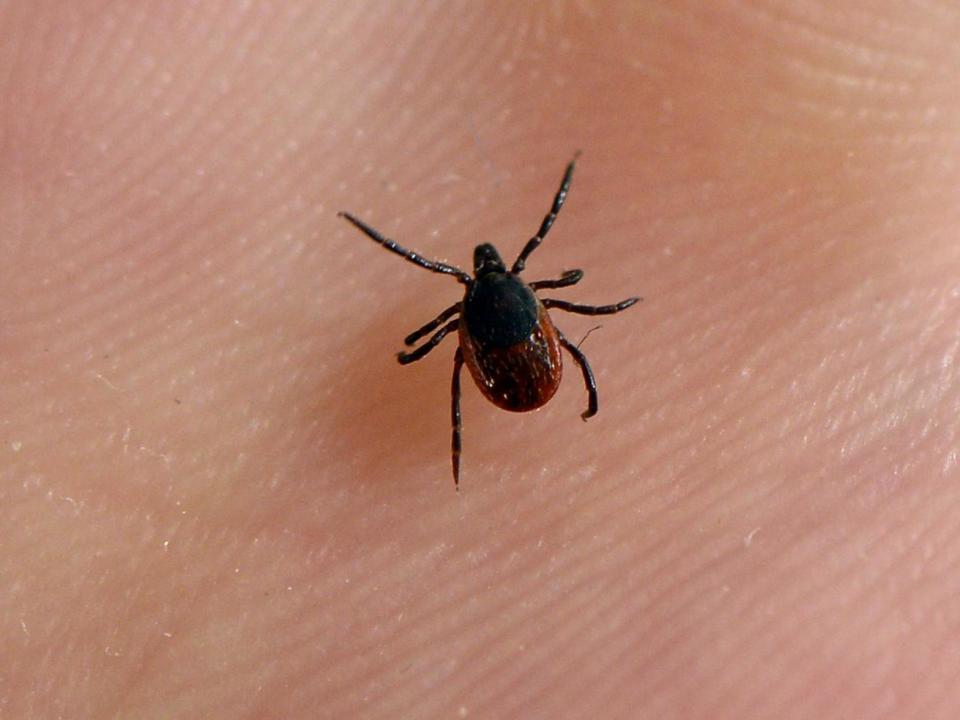Potentially deadly tick-borne parasite found in UK for first time

A potentially deadly tick-borne parasite has been found in the UK for the first time.
The organism, B venatorum, causes an animal disease recognised as an emerging infection in people called babesiosis, also known as "Texas fever"
Infected people may show symptoms such as flu and jaundice, but severe cases can lead to death, the European Centre for Disease Prevention and Control warned.
The disease has been recorded extensively in China and also in Europe, with two confirmed human infections in Italy over the last two decades.
It has never previously appeared in the UK.
A study by University of Glasgow scientists reports the organism has now been identified in sheep in the north-east of Scotland.
The small parasitic arachnids, which can also carry other diseases such as Lyme disease, are becoming increasingly common in parts of the UK, mostly due to increasing deer numbers.
They can live in undergrowth and latch onto humans when they walk through undergrowth and long grass.
Willie Weir, senior university clinician, said: “The presence of B venatorum in the UK represents a new risk to humans working, living, or hiking in areas with infected ticks and livestock, particularly sheep.
“Although we believe the threat to humans to be low, nevertheless local health and veterinary professionals will need to be aware of the disease if the health risk from tick-borne disease in the UK is to be fully understood.”
Scientists collected blood from sheep, cattle and deer in the north-east of Scotland in areas where tick-borne diseases have previously been detected.
DNA from the parasite was detected in the blood of a large number of sheep, which were not showing any signs of disease, making them carrier animals.
Researchers believe B venatorum may have been carried to the UK by migratory birds from Scandinavia.
Identification of the parasite in the UK raises concerns for European public health and farming policy, according to the study, which will be published in the December edition of Emerging Infectious Diseases.
Mr Weir added: “Our findings follow the recent report of the detection of tick-borne encephalitis virus in the UK.
“Taken together, these findings signify a change in the landscape of tick-borne pathogens in the UK and the underlying causes for this need to be investigated.”
Last month, Public Health England warned it had identified an infectious disease that can damage the brain and is spread to humans by tick bites.
It was the first time the tick-borne encephalitis virus was discovered in the UK.
PHE said although the risk is “very low”, it was investigating how common the infected ticks may be.
Additional reporting by Press Association

 Yahoo News
Yahoo News 